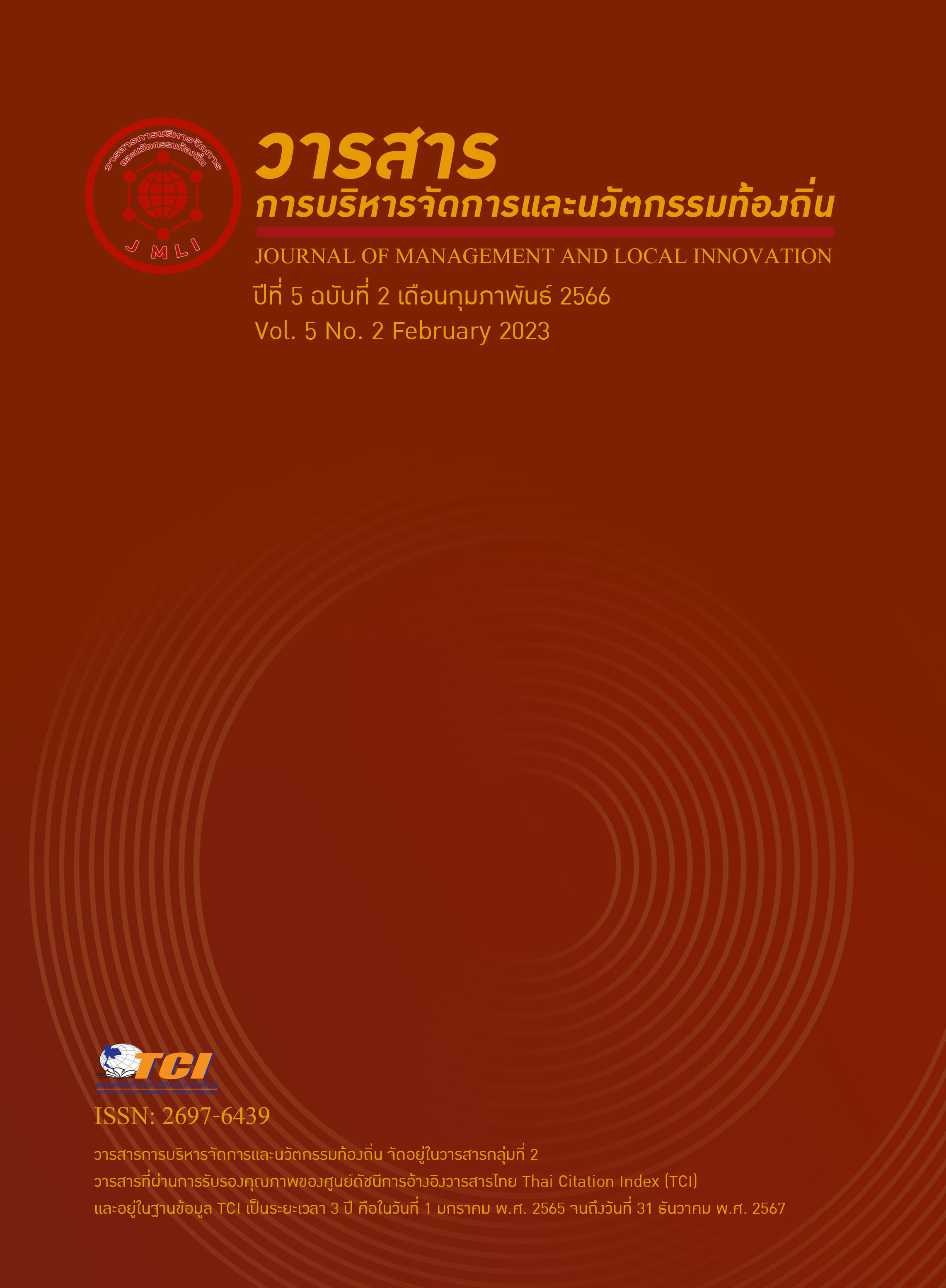The Super Leadership of Administrators Under the Pathum Thani Secondary Education Service Area Office
Keywords:
Super Leadership of Administrator, Pathum Thani Secondary Education Service Area OfficeAbstract
This research aimed to 1) investigate the super leadership, 2) propose the practical approach of the super leadership of administrators under the Pathum Thani Secondary Education Service Area Office. The research sample consisted of 322 teachers under the Pathum Thani Secondary Education Service Area Office. The key informants included five school administrators from the Pathum Thani Secondary Education Service Area Office. The instruments were questionnaires and interview forms. To analyze the data, the researcher conducted statistics consisting of frequency, percentage, mean, standard deviation, and content analysis for the qualitative study. The findings revealed that: 1) school administrators' super leadership demonstrated a high level in an overview. 2) The practical approach of the super leadership of school administrators included seven dimensions. (1) Self-leadership teacher: School administrators encouraged personnel to change their behavior in the appropriate direction. (2) A role model for personnel to lead themselves: as a role model, school administrators demonstrated a desirable model for encouraging personnel to lead. (3) Encouraging personnel to determine their goals: School administrators activated, encouraged, and assisted personnel in the department to realize the school's goals. (4) A positive mindset: Administrators encouraged and provided suggestions, a positive work attitude, and a rational approach to problem solving. (5) Self-Leadership: Administrators had mentoring support to build a considerate relationship. (6) Encouraging self-leadership through team building: Administrators fostered cooperation among practitioners, encouraged personnel to develop themselves and their teams, and provided advice and consultation. (7) A self-leadership culture meant administrators had executive behaviors to facilitate personnel in various areas with satisfactory results.


